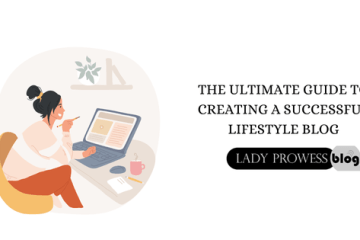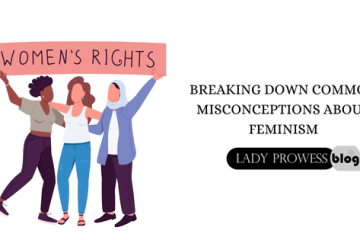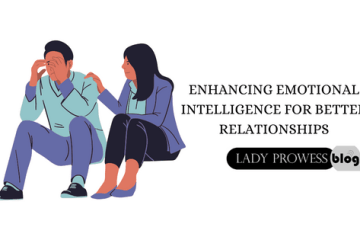The impact of social media on lifestyle and mental health
Discover the impact of social media on lifestyle and mental health in this comprehensive blog post. Learn strategies for healthy social media use to promote well-being and navigate the digital landscape effectively. Take control of your relationship with social media and prioritize your mental health.
In recent years, social media has transformed how we communicate, connect, and share information. While it offers numerous benefits, it also raises concerns about its impact on lifestyle and mental health.
This post explores how social media influences our well-being, examining the positive and negative effects. By understanding these dynamics, we can navigate the digital landscape more effectively and promote a healthier relationship with social media.
Ways in which social media can impact well-being
Social media profoundly influences individuals’ well-being, shaping various aspects of their lives. Here are some key ways in which social media can impact well-being:
Read More: Ways to Create a Productive Morning Routine.
- Emotional well-being: Social media can impact individuals’ emotions and moods. Constant exposure to negative news, conflicts, or toxic interactions on social media platforms can increase stress, anxiety, and sadness. Conversely, positive and uplifting content can enhance well-being and foster positive emotions.
- Self-esteem and body image: Social media platforms often promote unrealistic beauty standards and curated lifestyles. Comparing oneself to these ideals can lead to lower self-esteem and body dissatisfaction. The pressure to gain likes, comments, and followers can also create a constant need for validation, affecting self-worth.
- Social connections: While social media provides avenues for connection, it can impact the quality and depth of relationships. Superficial online interactions may replace meaningful face-to-face interactions, leading to feelings of loneliness, isolation, and reduced social support.
- Fear of missing out (FOMO): Social media platforms showcase others’ experiences, events, and accomplishments, triggering fear of missing out. This fear can generate anxiety and a constant need to stay connected, leading to compulsive checking and increased stress levels.
- Productivity and focus: Excessive use of social media can negatively impact productivity and focus. Constant notifications, distractions, and the addictive nature of social media can hinder concentration, affecting work or academic performance.
- Sleep disturbances: Using electronic devices for social media engagement before bed can disrupt sleep patterns. The blue light emitted by screens can interfere with the production of melatonin, a hormone essential for a good night’s sleep, leading to insomnia or poor sleep quality.
- Cyberbullying and online harassment: Social media platforms can become breeding grounds for cyberbullying and harassment. Negative comments, trolling, and public shaming can deeply impact individuals’ mental health, causing distress and emotional harm.
- Information overload and credibility: Social media presents vast information, making it challenging to discern accurate and reliable content. Exposure to misinformation or fake news can cause confusion, anxiety, and a sense of being overwhelmed.
The impact of social media on lifestyle and mental health
The impact of social media on lifestyle and mental health is multifaceted, encompassing both positive and negative aspects. Here are some key impacts to consider:
The Positive Effects of Social Media
- Connecting people: Social media platforms allow individuals to connect and maintain relationships with people across distances, fostering a sense of belonging and support.
- Information sharing and awareness: Social media is a powerful tool for disseminating information, raising awareness about important issues, and promoting social change.
- Building communities: Online communities provide a platform for individuals with shared interests or experiences to connect, seek support, and find like-minded individuals.
The Negative Effects of Social Media
Social Comparison and Self-esteem:
- The “highlight reel” effect: Constant exposure to others’ curated and idealized lives can lead to social comparison and feelings of inadequacy.
- Impact on self-esteem: Unrealistic beauty standards and the pressure to present a perfect life can contribute to low self-esteem and negative self-image.
Cyberbullying and harassment:
- The rise of online harassment: Social media platforms can become breeding grounds for cyberbullying, leading to emotional distress and mental health issues.
- Anonymous attacks and public humiliation: Individuals may face derogatory comments, threats, and public shaming, impacting their well-being and overall mental health.
Fear of missing out (FOMO) and compulsive use:
- Constant connectivity: The fear of missing out on events and experiences shared on social media can lead to anxiety and compulsive checking of platforms.
- Reduced real-world interactions: Excessive social media use can result in diminished face-to-face interactions, leading to feelings of isolation and loneliness.
Negative body image and eating disorders:
- Unrealistic beauty standards: Social media bombards us with images that perpetuate unrealistic beauty ideals, contributing to body dissatisfaction and poor self-image.
- Influence on eating disorders: The constant exposure to these ideals can contribute to developing eating disorders and unhealthy relationships with food.
Addiction and dependency:
- The dopamine effect: Social media’s highly interactive nature triggers dopamine release, leading to addictive behaviors and dependency.
- Productivity and well-being impact: Excessive social media use can reduce productivity, impair focus, and increase stress levels, affecting mental health and overall well-being.
Strategies for Healthy Social Media Use
Mindful consumption
- Awareness of emotional well-being: Regularly checking in with oneself to assess the impact of social media on mood and self-esteem.
- Curating the feed: Unfollowing accounts that trigger negative emotions or comparisons and following those that promote positivity, inspiration, and mental well-being.
Setting boundaries
- Limiting screen time: Establishing designated periods for social media use and reducing overall screen time.
- Digital detoxes: Taking regular breaks from social media to disconnect and recharge.
Promoting real-world connections
- Balancing online and offline interactions: Prioritizing face-to-face interactions and nurturing real-world relationships.
- Engaging in hobbies and activities: Investing time in activities that promote personal growth, creativity, and well-being.
Practicing self-care
- Prioritizing sleep: Establishing a digital curfew and avoiding screens before bedtime to improve sleep quality.
- Mindfulness and stress reduction: Incorporating mindfulness techniques, such as meditation or deep breathing exercises, to reduce stress and promote mental well-being.
Summary
Social media has undoubtedly shaped our lifestyle and mental health, offering benefits and challenges. While it provides opportunities for connection, information sharing, and community-building, it also poses risks to self-esteem, mental well-being, and personal relationships.
By adopting mindful consumption, setting boundaries, promoting real-world connections, and practicing self-care, we can navigate the digital landscape in a way that fosters a healthy relationship with social media and supports our overall well-being. Remember, it is within our control to shape our online experiences and use social media for positive change and personal growth.



0 Comments